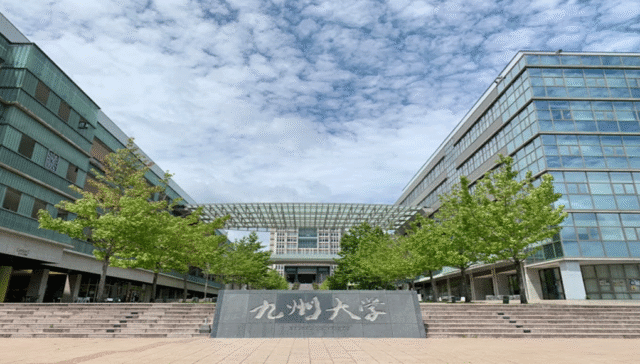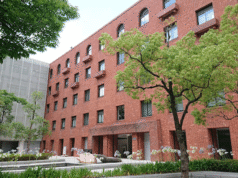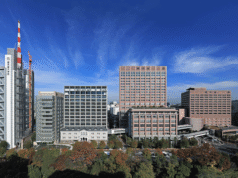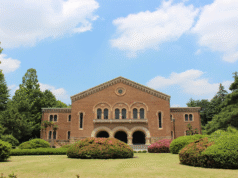Kyushu University: Japan’s Southern Imperial Legacy Driving Research, Education & Global Impact
Introduction
Founded as the fourth Imperial University in 1911 in Fukuoka, Kyushu University (Kyudai) has evolved into one of Japan’s top-tier national research universities. With campuses sprawled across the urban and coastal landscapes of Fukuoka, Kyudai seamlessly combines deep historical roots with forward-looking goals. The university’s Vision 2030 focuses on tackling global challenges through integrative knowledge, emphasizing areas such as decarbonization, health sciences, environment, and food security. This article explores Kyudai’s journey, academic structure, facilities, research excellence, student support services, and global reputation, all grounded in officially sourced information.
1. Establishment & Historical Overview
- Origins: Kyushu University traces its roots to 1903, when the Fukuoka Medical College was established as a branch of Kyoto Imperial University (Wikipedia).
- Foundation: In 1911, it became independent as Kyushu Imperial University, thanks in part to a donation from the Furukawa Zaibatsu and leadership from Kenjiro Yamakawa (Wikipedia).
- Evolution: In 1947, the name was simplified to Kyushu University, and in 1949 it expanded by incorporating several local institutions (Wikipedia).
- Today: Kyushu U is one of Japan’s seven national universities, with around 19,000 students and 8,000 faculty and staff, situated in Fukuoka City on the island of Kyushu (Kyushu University, Wikipedia).
2. Academic Structure & Courses Offered
Kyudai’s academic breadth is reflected in its expansive offerings:
- Faculties (16 total) including:
- Humanities, Social and Cultural Studies, Human-Environment Studies, Law, Economics, Languages & Cultures, Sciences, Mathematics, Medical Sciences, Dental Science, Pharmaceutical Sciences, Engineering, Engineering Sciences, Design, Information Science & Electrical Engineering, and Agriculture (Wikipedia).
- Schools & Graduate Programs: These faculties offer undergraduate and graduate studies, as well as specialized graduate schools aligned with major disciplines (Wikipedia).
- Many programs offer English-taught options, such as the Agriculture International Undergraduate Program and Graduate Program (ag.kyushu-u.ac.jp).
3. Campuses & Facilities
Kyushu University spans several campuses, each with distinct facilities:
a. Ito Campus
- Located in western Fukuoka (Itoshima Peninsula); launched in 2005 as a purpose-built academic town (tj.kyushu-u.ac.jp, Kyushu University).
- At 272 hectares, it is the largest university campus in Japan (agr.kyushu-u.ac.jp, tj.kyushu-u.ac.jp).
- Houses Engineering and General Education schools, central library, cafeterias, dormitories, student support, and activity spaces (agr.kyushu-u.ac.jp).
b. Other Campuses
- Hakozaki, Maidashi, Chikushi, Ohashi and University-affiliated research forests spread across the region (Wikipedia).
- Maidashi Campus includes the modern University Hospital, one of the country’s largest, featuring advanced clinical and research facilities (Wikipedia).
4. Student and Campus Life Facilities
Kyudai places strong emphasis on student well-being and community:
- Dormitories at Ito Campus:
- Dormitory 1 & 2 offer single rooms with varied ratios of international to Japanese students.
- Dormitory 3 features shared units mixing students for intercultural interaction.
- Ito Harmony House accommodates many students, including married and disabled students, aiming for a 1:1 international-Japanese mix (Kyushu University).
- Welfare Facilities:
- Cafeterias, convenience shops (e.g., Seven-Eleven, Lawson), cafes, bookstores and student dining halls spread across campus zones ensure abundant amenities (Kyushu University).
- Student Commons & Counseling:
- The Design Commons on Ohashi Campus includes active learning spaces, a cafeteria, and student health counseling offices (design.kyushu-u.ac.jp).
5. Research Activities & Centers
Kyudai supports extensive research infrastructure:
- Faculty of Agriculture Facilities:
- Includes university farms, research forests spanning across Fukuoka and Hokkaido, fishery labs, centers for biological control, genetic resources, aquaculture technology, and insect studies for biodiversity/environmental concerns (ag.kyushu-u.ac.jp, agr.kyushu-u.ac.jp).
- Design Department:
- The Design Library houses the Lloyd Morgan architectural collection and features advanced media rooms and active learning corridors post-renovation (design.kyushu-u.ac.jp).
- Shiiki Hall:
- A landmark auditorium and gala space built to commemorate Kyudai’s centenary, holding up to 3,000 people (Kyushu University).
- C-CUBE (Chikushi Campus):
- Offers collaborative learning spaces, an auditorium, e-learning environments, and an inclusive library with both Japanese and English materials (tj.kyushu-u.ac.jp).
6. Academic Excellence & Notable Alumni
Kyushu University’s academic prestige is demonstrated through its faculty and alumni:
- Chihaya Adachi:
- Director of the Center for Organic Photonics and Electronics Research (OPERA) at Kyudai. A pioneer in OLED technology (TADF), awarded Minister of Education Commendation, JPS Fellow, and the Purple Ribbon medal in 2023 (Wikipedia).
- Kōsuke Morita:
- Professor in the Graduate School of Science, led discovery of element 113 (“nihonium”) (Wikipedia).
- Wolfgang Michel-Zaitsu:
- First foreign tenured professor at Kyudai, specializing in East-West medical history, recipient of multiple international awards (Wikipedia).
7. Career Support & International Engagement
Kyudai fosters student development beyond academics:
- Career and Employment Support: The university offers job systems, career consulting, and job hunting assistance, including services tailored for international students (Kyushu University).
- Student Clubs & Maker Spaces:
- Faculty of Engineering supports over 170 clubs; creative groups like Robocon Team, Planet-Q (model rockets), and Formula Project operate in the Sozo Kobo workshop (eng.kyushu-u.ac.jp).
- International Communities:
- Student-led groups such as KUFSA (Kyushu University Foreign Students Association) and SCIKyu foster cross-cultural interaction and organize events (Reddit).
- Student Experiences (Reddit Insights):
8. Scholarships & Fellowships
While detailed scholarship listings are not found on the official pages, Kyudai participates in national programs like the Global 30 project to attract global talent (Wikipedia).
9. Reputation & Rankings
- Global Recognition:
- Consistently ranked among the top 10 Japanese universities by Times Higher Education and QS Rankings (Kyushu University, Wikipedia).
- Imperial Heritage & Prestige:
- One of Japan’s original Imperial Universities, degrees from Kyudai are highly respected, particularly regionally (Reddit).
10. Address & Contact Points
Kyushu University is headquartered in Fukuoka Prefecture with multiple campuses:
- Notable campuses include Ito, Maidashi, Hakozaki, Chikushi, and Ohashi (Wikipedia).
- For detailed maps, contacts, and administrative divisions, visitors should refer to the university’s official “About” and “Facilities” pages (Kyushu University).
Summary
Kyushu University stands as a powerful blend of tradition and innovation—a premier research institution with roots in the Imperial era, now driving social impact across science, agriculture, engineering, and culture. With its sprawling Ito campus, robust facilities, international outreach, and leadership in research and education, Kyudai exemplifies academic excellence. Student life is vibrant across clubs, career support systems, and multicultural communities, making it a top choice for students pursuing both depth and breadth in higher education.
Kyushu University Japan courses and programs, Kyushu University scholarships for international students, Kyushu University campus facilities and amenities, Kyushu University research excellence, how to apply to Kyushu University Japan, Kyushu University rankings and reputation, student life at Kyushu University Japan, Kyushu University career opportunities and placements














